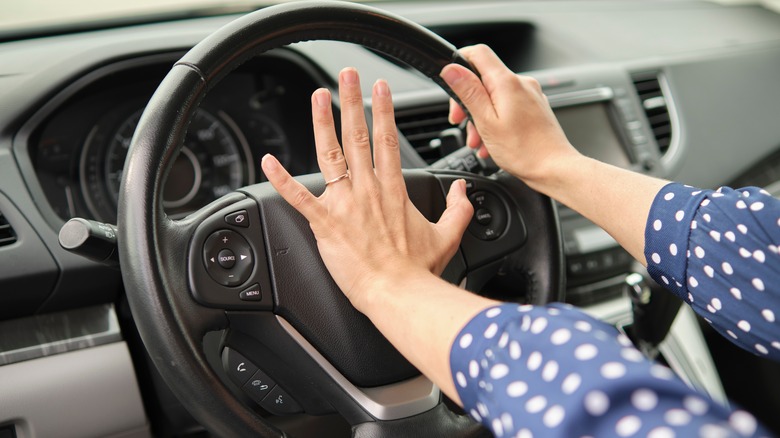Travel Guides Road Trips
Brie Schmidt
Driving in a new place can take some getting used to. Depending on the location, you could have to drive on a different side of the road than you usually do, or you might have to learn new signage and even a bit of a foreign language if you’re in a different country. However, faraway destinations aren’t the only places where you might run into confusion on the road. Even navigating a new area in your home country can sometimes require learning new traffic rules. For Americans, that can mean brushing up on local laws when traveling through an unfamiliar state or territory.
According to the U.S. Department of Transportation, traffic regulations are decided by each state, not at the federal level. That means, for instance, a road trip along the East Coast will require understanding and following the laws of multiple different states. One of those states is New Jersey, where drivers need to honk when passing cars on the road.
Sound your car horn when passing other vehicles

Bilanol/Shutterstock
Passing a slower vehicle on the left may be the norm throughout most of the U.S., but in New Jersey, there’s a law that requires an extra step when making this maneuver. According to law website Justia, section 39:4-85 of New Jersey traffic regulations states that drivers must sound a warning each time they overtake another vehicle when they’re not in a business or residential district. In other words, whenever you pass another car, the law of the land says to make some noise by honking your horn.
The rule might help alert drivers of a passing vehicle that could be missed in their side-view mirrors, which may prevent car accidents. But, mostly, the law seems to exist as a relic of the past. In 2012, State Assemblyman Mike Carroll told NJ.com that the law was first enacted in 1928 and still remains on the books, even if it isn’t as relevant today. As Carroll remarked, “If you followed every law you couldn’t get out of your driveway without losing your license.” Put another way, you could technically get punished for not following the honk-when-passing rule, though honking too much could also land you in hot water.
Learn New Jersey’s laws on passing cars

Damircudic/Getty Images
There are other requirements to know when passing vehicles on New Jersey roads. Section 39:4-85 says that passing should only take place when a driver has sufficient space and that they shouldn’t return to the right lane until they’ve completely overtaken the other car, with plenty of room to spare. You may also pass a car on the right but only under certain conditions. Specifically, it’s okay to pass on the right if both lanes on the road are going in the same direction or if the car being overtaken is making a left turn.
An additional law ensures the safe passing of pedestrians and operators of other vehicles, such as scooters, according to the New Jersey Department of Law & Public Safety. The law requires that motorists passing pedestrians, cyclists, and other individuals on the road must maintain a 4-foot space between them. If they aren’t able to leave a 4-foot gap, they must slow to a speed of 25 miles per hour. Drivers who violate these traffic laws, or any rules of the road, might want to be aware of another unusual practice in the Garden State: You’re supposedly not allowed to frown at a police officer, per New Jersey attorney Joseph A. Rutigliano. It’s unclear, however, if the law is still in place or actually enforced by officers.

